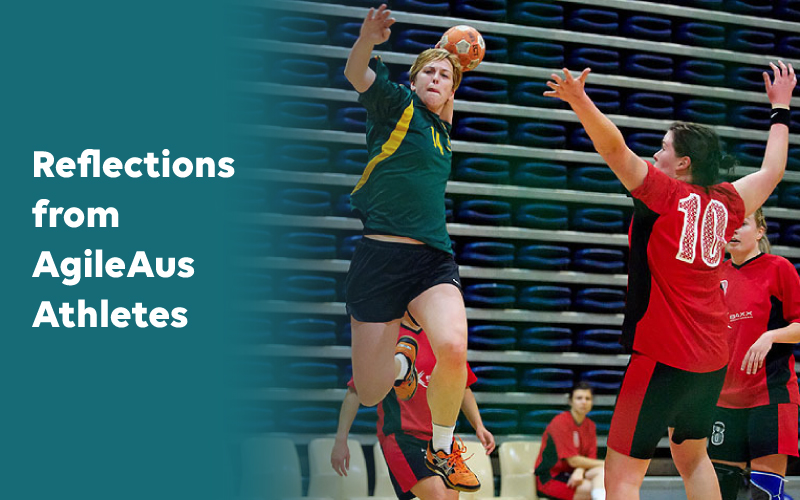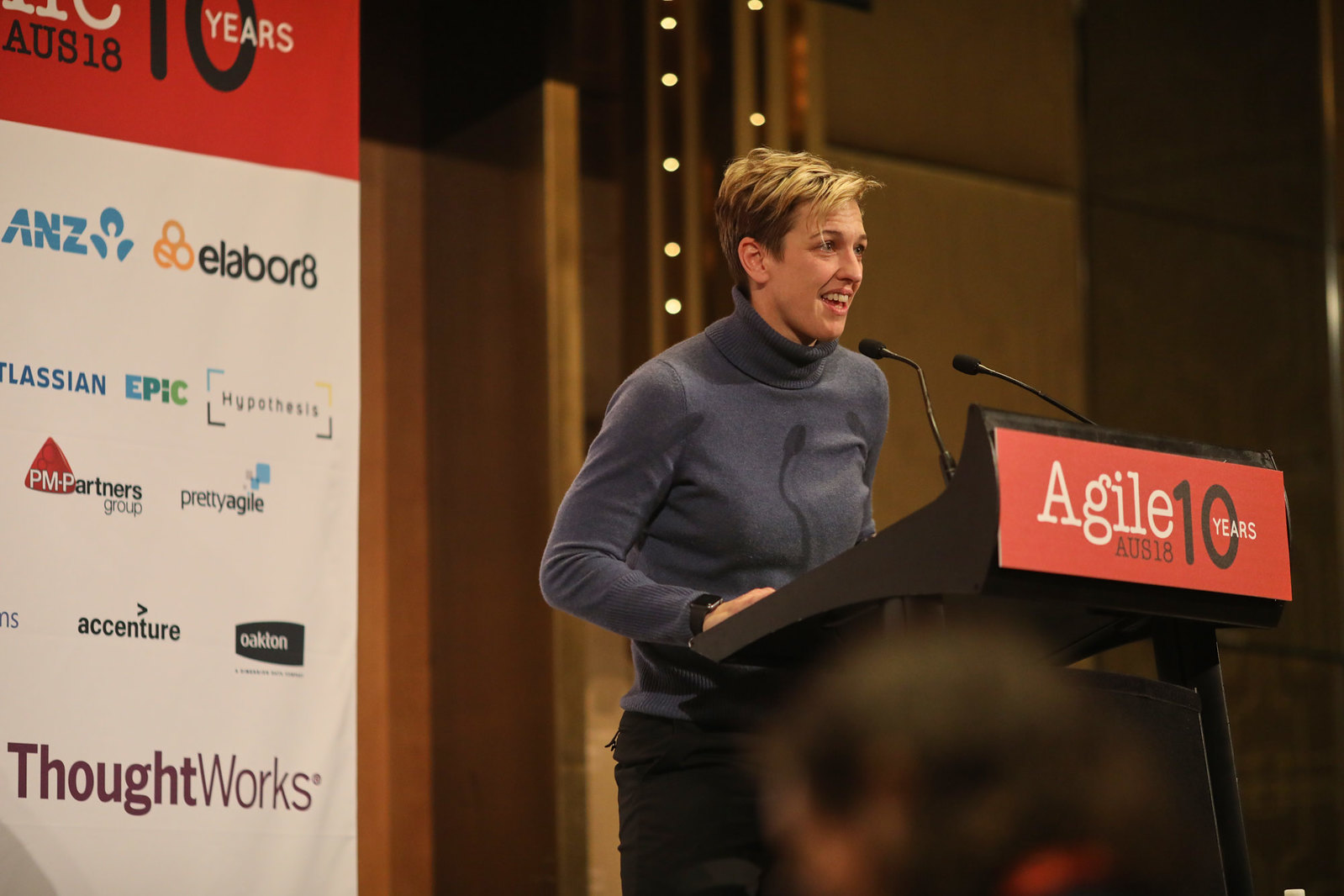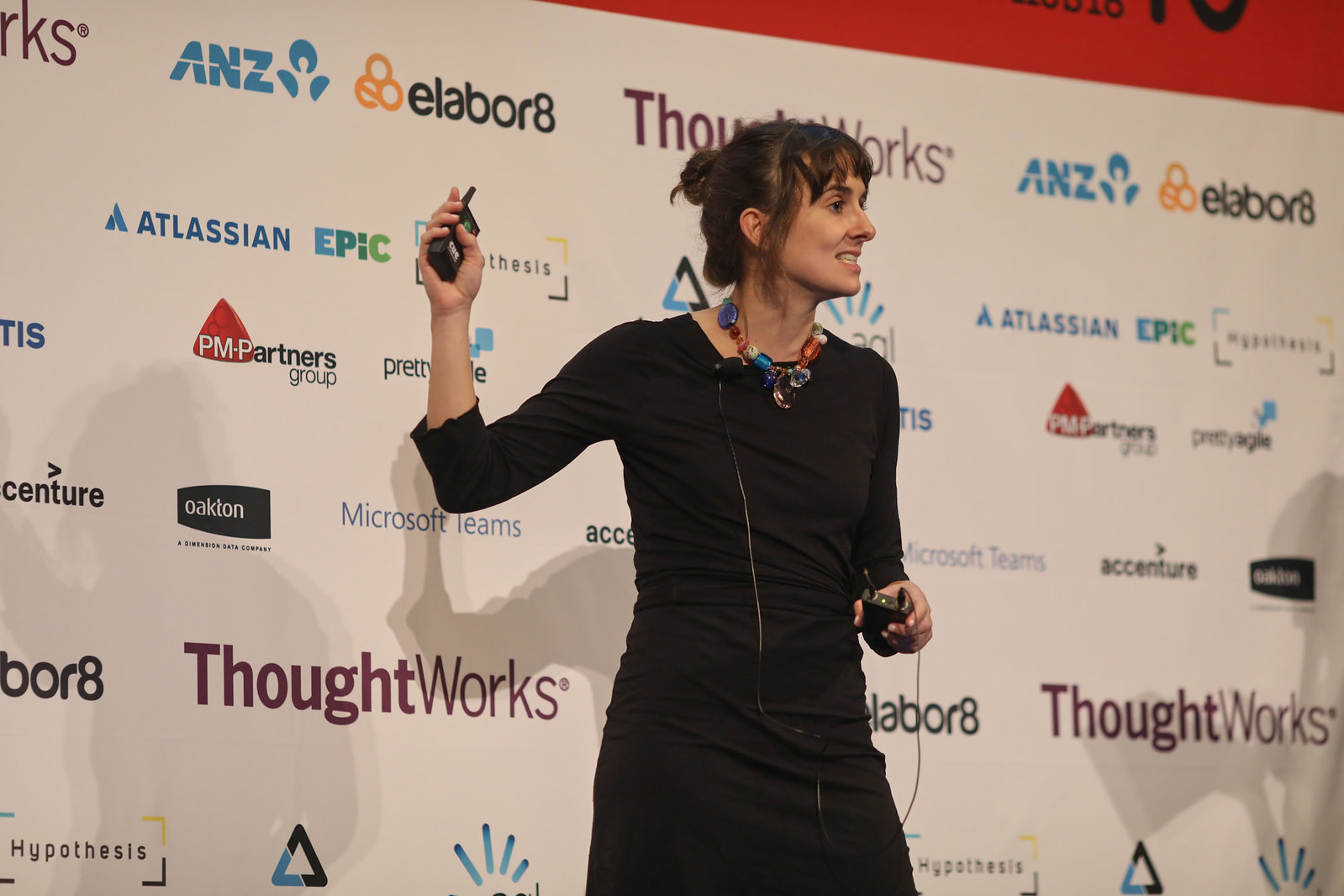
Reflections from AgileAus Athletes
AgileAus community members share practical tips from the athlete’s mindset that can help us succeed at work.
Sport creates a stage where the individual’s role on the team is magnified—and where bouncing back from failure is essential. As Sam Walker writes in The Captain Class:
Unlike the business world, where innovative new products can be developed in secret, sports does not allow teams to hide their techniques. They can hone them in practice, but they must display them during matches in full view of their opponents, who can keep rewinding the tape until they find vulnerabilities… In this constricted, pressurised environment, the outcome can be determined by a fraction of a second or a gap no wider than an inch. One small mistake made by a single person can overwhelm an hour of otherwise flawless play.
This got us wondering what practical tips we can take from the athlete’s mindset to help us succeed in our work lives. We tapped into the thoughts of some AgileAus community members to find out!
Six World Class Tips for Success
Former Olympic handballer and AgileAus19 speaker Sandy Mamoli has previously shared her “Six World Class Tips” on how the Olympics can make you a better person in your work life.

Sandy Mamoli speaks at AgileAus18.
1) Pick your team wisely
Don’t be afraid to start out as the worst player on the best team that will still accept you. As in sports, being around people who are better than you helps normalise high performance and holds you to a higher standard. Carefully choose to join the best companies and teams that’ll accept you.
2) Know when to go
Never feel bad about leaving a job or a team, especially if you feel you’re the best player or have exhausted your opportunities for learning. After all, no one in sports would feel guilty about this!
3) Collaboration is key (even though it’s hard!)
You don’t need to be friends to succeed together. Sporting teams are 100% chosen by merit: you’re grouped with people you may not like or relate to, but you have to learn to play with them as they’re the best at what they do. As long as you establish safety and trust, collaboration is possible.
4) Be good at feedback
We’ve probably all seen how a player who refuses to pass or a co-worker who hoards information can be ruinous to a team. Being ‘good’ at feedback means knowing how to give and receive advice, and whose advice to listen to. Your team should be an environment where there are no ‘undiscussables’, so a single player’s behaviour doesn’t impact the team.
5) Never stop learning
The pace and strategy of sports is constantly evolving as players learn to approach their game in more innovative ways. This pattern of continuous learning should be adopted in your professional life, too. When learning, focus entirely on what’s happening in that moment—freeing your mind from the pressures of achieving ‘outcomes’ or ‘progress’.
6) Be deliberate about your career
As in sports, when you feel a mix of fear and excitement, you know you’re heading in a productive direction! Set up a safety net so you can afford to take risks in your career and so you don’t find yourself stuck somewhere you aren’t learning.

A flashback to Sandy Mamoli in handball mode!
Lessons about failure from the girl who came last
Some readers may have caught Elise Aplin at AgileAus18, where she delivered the talk “Lessons about failure from the girl who came last”. Elise, a former competitive distance runner, had a great deal to teach us about failure based on her sporting experiences.
Elise drew upon an anecdote about running in state championships of the 3000 metre steeplechase. Initially positioned at the front of the pack but then falling to last place, Elise – incredibly fatigued – still had to navigate the obstacles on the track and complete the race.
Even sharing this experience with crowds revealed a lot to Elise about how we approach the concept of failure. It’s considered awkward and taboo to talk with people about things they’re not good at or have struggled with. In some senses, we’re comfortable with dialogue around failure in the workplace: mature teams can accept that things might not go right the first time around and that iteration is necessary. However, while we’re comfortable discussing failure on a team level, it’s important to address accountability around failure on an individual level as well.
Three weeks after coming last in the state steeplechase contest, Elise competed in the Australian championships. In this short space of time, there was no time to make physical changes. The only thing Elise could change was her mental approach.
It worked: Elise moved from last place to fifth. She credited this with operating in a high-performing environment, where she and her coaches could have transparent, honest conversations after the disappointment of the state championship. Elise explained that athletes must have defined goals, yet they must also accept that they may not reach them. This creates a framework for individual accountability, wherein athletes must communicate honestly with their coaching staff to achieve growth.
The key isn’t just to talk about failure, Elise told us, but to discuss what you’ve learned from it and what you think the next steps for progression should be. In the workplace, this can take the form of a ‘failure wall’ or ‘failure log’, allowing you to chronicle everything you tried that didn’t necessarily work. Openly discussing your personal failure does everyone a service—letting others know what you’ve unsuccessfully trialled allows them to grow from the experience as much as you!

Elise Aplin speaks on lessons learned from sport at AgileAus18.
Although many obvious points of comparison exist between the fields, we mustn’t be too hasty in drawing parallels between sporting and corporate performance. The athlete’s mindset is uniquely predicated on a culture that values ‘winning’ above all else—an outcome we must be cautious not to overemphasise in our workplaces.
Despite this, the above comments from Sandy and Elise offer tangible lessons that can translate neatly into our work lives. If you’re keen to further explore how adopting an ‘athlete’s mindset’ can help you at work, come along and hear Richmond Football Club’s Mindfulness Coach, Emma Murray, when she speaks at AgileAus19.

Stay in the loop
To receive updates about AgileAus and be subscribed to the mailing list, send us an email with your first name, last name and email address to signup@agileaustralia.com.au.

0 Comments